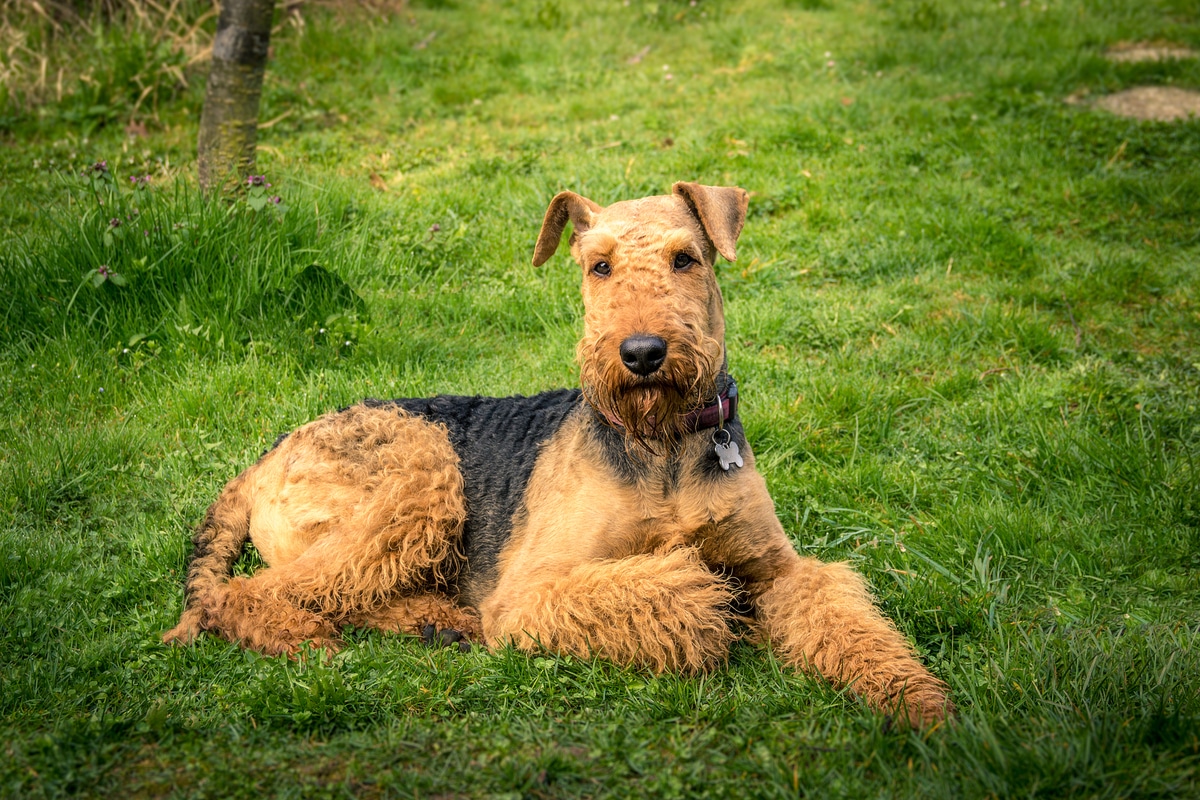
If you're looking to adopt a small breed dog, you've come to the right place. Continue reading to learn about French Bulldogs and Bichon Frises as well as Cocker Spaniels. Each breed is different and each requires different amounts of exercise and grooming.
Cocker Spaniels
Cocker Spaniels can be a great small-breed dog. But you should be prepared for challenges. They can shed a lot of hair and are not hypoallergenic. For people who suffer from allergies, this may be a problem.
There are many diseases that could affect the eyes of your Cocker. Blindness can be caused by progressive retinal atrophy. This is a condition in which the cells of the retina are gradually damaged. Glaucoma, where pressure builds up within the eyes, is another condition that can affect Cockers. These conditions can be managed with several options. If your dog shows any of these symptoms it is best to consult your vet.
Mini American Shepherds
Mini American Shepherds are small-breed dogs with a dense double coat. This double-coated dog sheds a lot. You should brush their coats daily. It is recommended that you bathe your dogs at least once per month. They should also be subject to regular ear examinations.

American Shepherds miniature are known for their intelligence and athleticism. They are similar to Australian shepherds and have medium-length coats that feature a merle pattern. Their coats have dense undercoats and a double-coated design. Their legs have moderate feathering.
Bichon Frise
Bichon Frises are a small breed that can adapt to a variety of environments. This breed of small dog expects constant human interaction and should be treated as an important part of the family. If this is not possible, a Bichon Frise is not a good choice for a family with children, as they are not known for being tolerant of noisy environments.
Bichon Frises are highly social, intelligent dogs. Bichon Frises thrive when they are given lots of affection and attention. These dogs are ideal for beginners and apartment dwellers. They are playful and need lots of exercise, and do not like to be alone for extended periods of time. They are gentle, affectionate and highly intelligent, and will respond to consistent human attention and play.
French Bulldog
French Bulldogs, a small breed, were originally bred in France. They can be used as a companion dog or toy dog. The French Bulldog was born in the middle of the 19th century. It is a crossbreed between Toy Bulldogs from England and Parisian rats.
The French Bulldog has a short coat and sheds fairly regularly. They only require a light grooming routine and need to be bathed about every four to six to eight weeks. The French Bulldog breed is usually between 11 and 13 pounds and has a life expectancy of nine to eleven.
Chihuahua

Chihuahuas, a small breed dog, originated in Mexico. Named after Chihuahua in Mexico, the Chihuahua is one of most small dogs on the planet. They are used as companions and pets.
Chihuahuas love their owners and are affectionate, lively dogs. They are playful, bold, proud, adventurous, and love snuggling. However, they can be stubborn and strong-willed without proper leadership.
Beagle
The Beagle is an excellent choice for an indoor small dog, as it is fairly low-maintenance. The Beagle is a small breed that sheds a lot but doesn't need to be bathed or taken to the groomer often. It is necessary to brush your dog's fur at least once per week. You'll also need to brush your dog’s ears regularly and trim its nails. While most beagles don't require annual wellness visits, some dogs may require more frequent grooming.
The Beagle's unique body structure can result in some health problems, including a tendency to gain weight. A dog with this body type is prone to developing hip dysplasia, which is a type of joint disease in which the joint and the socket do not grow at the same rate.
FAQ
Are there any signs my dog may be ill?
Many symptoms can indicate that your dog may be sick. Symptoms include:
-
Vomiting
-
Diarrhea
-
Lethargy
-
Fever
-
Weight loss
-
Appetite decrease
-
Coughing
-
Difficulty Breathing
-
Bleeding from below the nose
-
Stool or urine contaminated with blood
These are just a handful of examples. Your vet will tell you what to be on the lookout for.
What do you do if your dog bites somebody?
If an animal attacks you, it is important to first make sure it isn't rabid. If that is not possible, get help. Do not attempt your own rescue, as you might be seriously injured.
If the animal is not aggressive but does bite, then take it to a veterinary clinic. Your vet will inspect the animal and recommend any further treatment.
Most cases will require rabies shots. These should never be administered yourself. Only a qualified person should administer these.
How much should I budget for my pet?
A good rule of thumb is to budget around $200-$300 per month.
This can vary depending on where one lives. For example, in New York City, you'd probably spend about $350 per month.
In rural areas, however, you might only need to spend $100 per month.
It is important to remember to purchase quality items, such as collars, leashes, toys, etc.
It is worth considering purchasing a crate to protect your pet. This will keep him safe during transport.
How long should a pet dog stay inside?
Dogs are naturally curious. This curiosity must be satisfied. If they don't have a place to go, they can be destructive. This can cause damage to property and injuries to people.
A leash should always be worn by dogs when they are outside. The leash prevents them from running wild and allows them to safely explore their environment.
If you keep your dog inside all day, he will become bored and restless. He may start to chew furniture and other objects. His nails may grow too long, which could lead to health issues.
This will help you avoid any negative consequences. Take him out for a walk, take him for a drive in the car, and/or to the park.
This will help him burn off energy and give him something constructive to do.
What age is appropriate for a child to have a pet?
Children under five years old shouldn't have a pet. Young children should not have cats or dogs.
Most kids who have pets end up being bitten by them. This is especially true with small dogs.
A few breeds of dogs, like pit bulls can be quite aggressive towards other animals.
A dog can be friendly but not aggressive, even if it appears friendly.
So, if you choose to get a dog, ensure it is well trained. And, always supervise your kid whenever she plays with the dog.
Statistics
- It's among a relatively few companies that provide policies with a full (100%) coverage option, meaning you are not responsible for any co-payment of bills. (money.com)
- Reimbursement rates vary by insurer, but common rates range from 60% to 100% of your veterinary bill. (usnews.com)
- Pet insurance helps pay for your pet's medical care, with many policies covering up to 90 percent of your vet bills. (money.com)
- For example, if your policy has a 90% reimbursement rate and you've already met your deductible, your insurer would pay you 90% of the amount you paid the vet, as long as you're still below the coverage limits of your policy. (usnews.com)
- It is estimated that the average cost per year of owning a cat or dog is about $1,000. (sspca.org)
External Links
How To
How to train a cat for a pet
You need to first learn about the type of cat you want to train. Cats have complex brains. Cats are highly emotional and intelligent. If you want to make sure that your cat behaves well, then you must take into consideration his/her personality. You should know how to treat your cat.
It is important to remember cats are independent beings. It means that they do not like to be told "no." They may become angry if you tell them no. This is why you should never hit your cat when he/she does something wrong. Although your cat deserves love and affection from you, it doesn't mean that you should treat him/her as a human being.
You should work with your cat to resolve any problems. Try to talk to him/her calmly and gently. You should not yell at them/her. Do not make him/her feel bad by shouting. Your cat cannot be forced to eat. Sometimes, your cat won't eat. It is a good idea to treat your pet when this happens. However, don't over-indulge as this could lead you to overeating.
Always keep your cat clean. It is important to clean your cat daily. Use a wet cloth to wipe off dirt and dust. Fleas should be removed from your cat's skin. Flea bites cause skin irritation and even allergies. Flea bites can cause severe skin irritation so you need to use a flea shampoo.
Cats are social animals. They enjoy spending time with people. You should spend quality time together with your cat. Play with your cat, play with him/her and give him/her a bath. These activities will make the cat happy.
You should begin training your cat as soon as possible. Your kitten should be trained by you as soon as he/she turns two weeks old. The best age to begin training your cat is around three months old. Your cat will be fully grown by this time and ready to learn new things.
If you are teaching your cat tricks, it is important to explain each step clearly. To teach your cat how to sit down, first show the chair. Then, reward your cat by giving him/her a treat. Repeat these steps until your cat understands what you mean.
Remember that cats can be very intelligent. Cats are smart and can figure out how to do tasks. They require patience and persistence. Don't expect your cat to instantly master a task. Allow your cat to practice for a while before you give up.
Never forget that cats are wild animals. Cats are playful and curious by nature. You should not let your cat run wild as he/she may accidentally knock over objects. It is important to keep your cat safe and away from other animals.